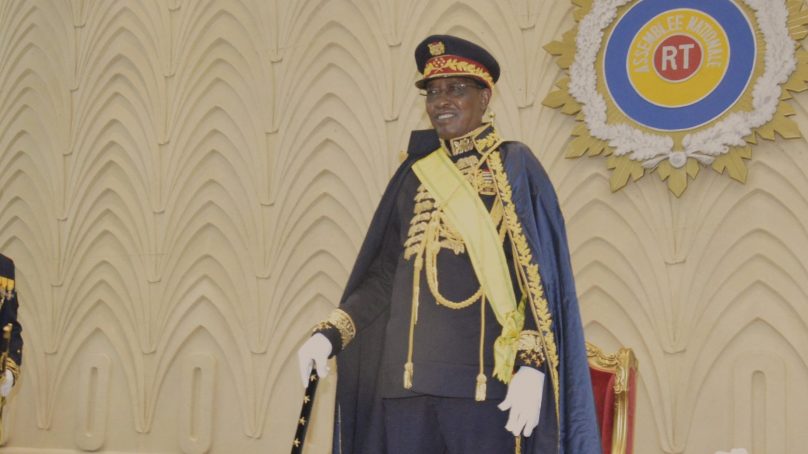
When long-serving, neo-patrimonial leaders in Burkina Faso, Gambia, Zimbabwe and Sudan were forced to step down because of popular and youthful protests in recent years, the era of “presidents for life” in Africa seemed to be ending.
Yet, for every such leader who has been forced from power, new ones emerge on the scene. In many cases, African leaders who retain power indefinitely are characterised by pervasive cults of personality, demonstrating the enduring potency of this instrument of power.
Cults of personality create an idealised and heroic image of a leader as being above and, in some cases, synonymous with the law, state and country. Hence, the fate of the nation is tied to that of the leader who is promoted as its father or even grandfather. The nation’s wellbeing and safety depend on respect for the wisdom, patronage, and vigilance of the revered leader.
The longer a leader clings to power the more likely a cult of personality will develop. This is consistent with the observation that African leaders who evade term limits often have declining levels of popularity and legitimacy and, therefore, must increasingly rely on non-democratic tools to maintain authority. Such leaders do not govern by consent but through coercion, inhibiting political competition, and controlling rewards and punishments.
This deviation from the rule of law often leads to human rights violations, the undermining of investor confidence, and the increased likelihood of conflict.
Many of Africa’s longest serving leaders – Equatorial Guinea’s Teodoro Obiang Nguema Mbasogo, who has ruled for 44 years, Cameroon’s Paul Biya (41 years), Uganda’s Yoweri Museveni (37 years), Eritrea’s Isaias Afewerki (30 years) and the Republic of the Congo’s Denis Sassou Nguesso (26 years) – have fostered cults of personality of one form or another.
Even when such leaders are ousted, their systemic erosion of independent governance institutions means that their legacies persist and democratic transitions stall. Former long-time rulers who cultivated cults of personality that continue to cast a long shadow over their countries include Algeria’s Abdelaziz Bouteflika, Burundi’s Pierre Nkurunziza, Chad’s Idriss Déby, Egypt’s Hosni Mubarak, Libya’s Muammar Gaddafi and Zimbabwe’s Robert Mugabe.
Making the president the singular focus of the nation has long-term damaging effects on governance institutions, sovereign decision-making, an apolitical civil service and military professionalism.
Some tools used to develop cults of personality include touting the indispensable attributes of the “paramount” leader via propaganda, patriotism training, state-organised demonstrations and rallies, monuments, the arts, sports events and printing of the leader’s image on coins, banknotes and other ubiquitous items.
In Cameroon, football has been used to perpetuate the omnipresence of President Paul Biya. This tool resonated with many given Cameroon’s craze for the sport. When its national side, the “Indomitable Lions,” reached the World Cup quarterfinal in 1990 – a first for Africa – Biya basked in the glory of this achievement by adopting the sobriquet, “Lion Man.”
Biya’s desire to associate himself with the Indomitable Lions included having a lion and lioness named after himself and his wife at the national zoo in Yaoundé. The death of the Paul Biya lion in 2007 sparked frenzied rumours about the President’s health – some of which landed journalists in jail with stiff sentences.
Such intense self-promotion seeks to counter perceptions of Biya’s serial absences. (He reportedly spends over 15 per cent of his time abroad – mostly at a high-end Geneva hotel.) In keeping with the myth of omnipresence, the government organises mass birthday parties in villages across Cameroon annually, even in his absence.
In February 2022, over 2,500 people turned up for just one of several dozen government-organised bashes in Yaoundé.
A common justification leaders give for hanging onto power and embracing “semi-divine” status is that only they can preserve the nation’s independence and deliver stability, security and economic development. This is the argument used by octogenarian Teodoro Obiang Nguema Mbasogo, Africa’s and the world’s longest serving president, whom state media describes as “the God of Equatorial Guinea who has all power over men and things and can kill anyone without going to hell.”
Obiang uses the pretext of preserving stability to crush opponents and concentrate executive, judicial and legislative power. His Democratic Party of Equatorial Guinea is run largely by family members and protégés. All party speeches end by wishing him well. Most government buildings have a presidential lodge attached to them. All towns have streets commemorating the coup that brought him to power in 1979 when he executed his uncle and predecessor, Macias Nguema. His face is printed on the clothing worn by party supporters and followers. Power is expected to remain firmly in family hands with the appointment of Obiang’s son, Teodoro Nguema Obiang Mangue, as Vice President in 2012.
Former Togolese President Gnassingbé Eyadéma – Africa’s longest serving ruler before his death in 2005 – employed a similarly brazen cult of personality. He had an entourage of 1,000 dancing women who sang in praise of him, portraits that adorned all buildings and stores, a bronze statue in Lomé, wristwatches with his portrait that appeared and disappeared every 15 seconds, and a comic book depicting him as a superhero with special powers. The date of a failed coup against him was commemorated annually as “The Feast of Victory Over Forces of Evil.”
His ruling Rally of the Togolese People (renamed the Union for the Republic in 1995) and the Togolese military are deeply intertwined with the Gnassingbé cult of personality and actively propagate it. Both institutions are dominated by their Kabyé ethnic group.
After Eyadéma’s death in 2005, the military installed his son, Faure, enabling the Gnassingbé dynasty to continue long after his death. In 2019, Faure passed a law giving himself 10 more years of rule – potentially extending his family’s dynasty to 63 years.











